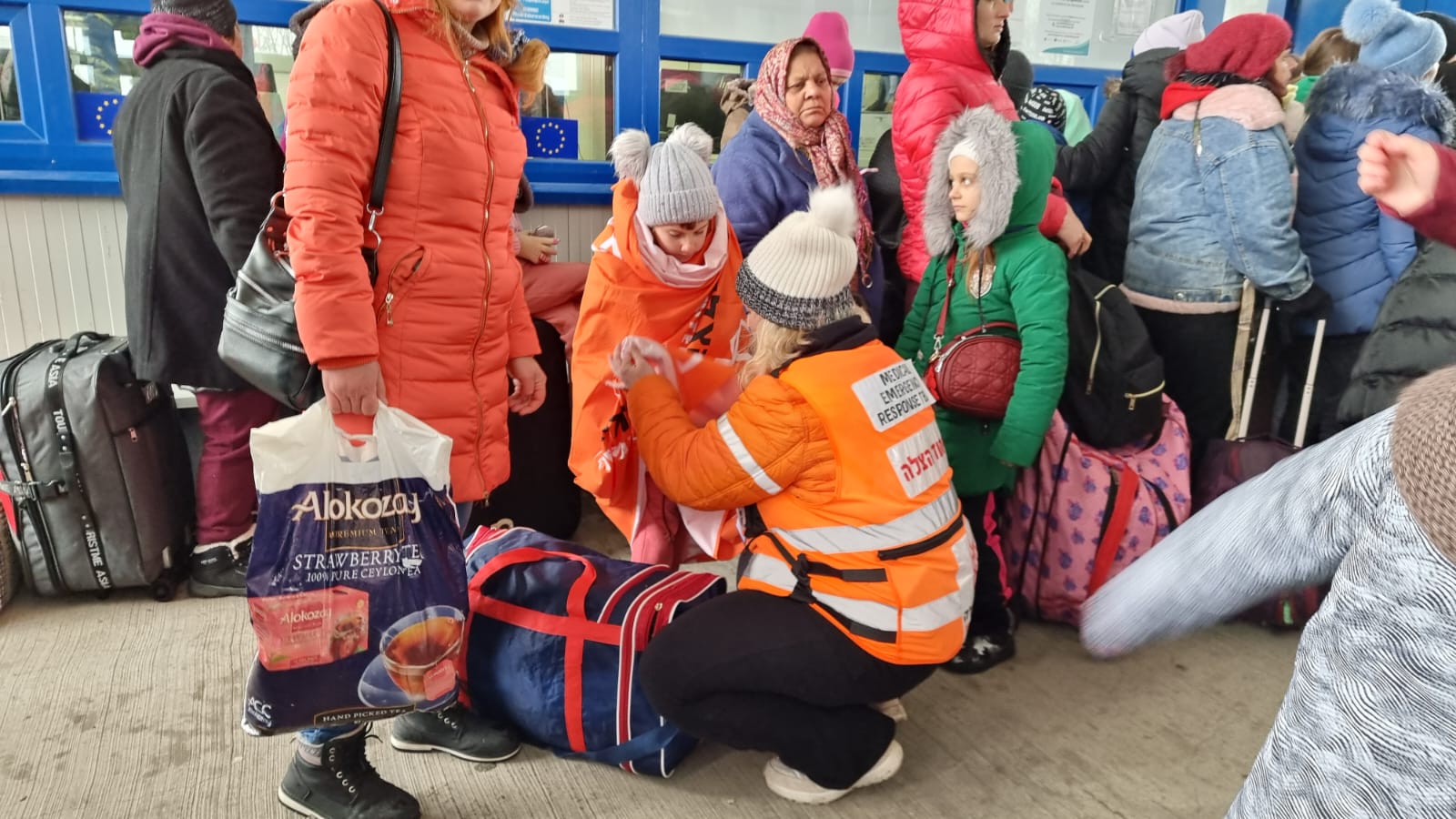Caring for Homeless Ukrainian Refugees
"[Once across the border], the women have no way to communicate with their husbands, fathers, brothers. They don’t know if they’ll ever see them again.""[The United Hatzalah delegation has set up an operation center within a synagogue in Kishinev] where we’re helping everyone. [There are Jewish, Christian, Muslim and Hindi refugees. There is a field hospital and coordination unit to] see what is happening on all the borders.""All the refugees are traumatized. We’ve been trained to treat the refugees to prevent post-traumatic stress disorder before it happens."Linor Attias, United Hatzalah emergency situation manager, volunteer medic in United Hatzalah’s psychotrauma unit, Moldova
 |
| Israeli volunteers distributing food to Ukrainian refugees in Moldova. Photo courtesy of United Hatzalah of Israel |
Poland has received millions of Ukrainian refugees, mostly women and children and the elderly, fleeing the Russian invasion of their country, and the devastation that an unexpected military campaign has wrought on their country. Their sons, fathers, husbands, cousins and uncles have remained behind, in Ukraine, to help the military fend off Russian attacks and defend their homeland in the face of a Russian military that bends to no international conventions for the protection of civilians.
Moldova has seen a much lesser number of refugees cross its border from Ukraine. It is a much poorer nation than Poland, with very few resources to house and care for refugees. There were no international aid groups on hand at the border to welcome the influx of refugees, until a group from Israel arrived to offer aid and comfort. Refugees trickled across the border and were greeted by volunteers offering food, warmth, medical attention, diapers, candy toys.
Children fearfully clung to their mothers, yet smiled with delight when they were offered candies and warm greetings. The aid team had Russian and Ukrainian speakers with them to reassure and give information to the refugees. A story that one young mother told the volunteers of the civilian convoy they had been part of, being confronted by a Russian tank. They fled their cars making their journey to the border, normally a few hours, last days, interrupted by frequent attacks from Russian planes.
The UN has estimated that up to four million Ukrainians may have fled to neighbouring countries for haven from the invasion that has destroyed towns and cities and killed thousands of Ukrainians. Most of the refugees wanted to remain close to the border with Ukraine, in the fervent wish to return home as soon as feasible. What they would be returning to in many cases would be destroyed towns and cities in ruin, rubble replacing the apartments and homes they hurriedly left.
The United Hatzalah group that flew to Moldova from Israel was the first to appear on the scene, joined soon afterward by other Jewish and Christian NGOs to receive the Ukrainian refugees. The doctors and other medical personnel with the group had ample work to do caring for those refugees with medical conditions. The refugees are moved by bus to nearby tent camps, while some travel directly to other European destinations; Romania and Poland.
The refugees speak of returning home in time -- back to Kyiv, to Odessa and other towns and cities that are home to them. Hot meals are served to all refugees that settle into the tent camps and a nearby Soviet-era hotel reserved for their stay where they are provided with medical care, clothing, warmth. This huge external displacement of people from their cities, their towns, their neighbourhoods and homes, all the work of a belligerent, angry modern czar whose rage at being defied has upset the world order as he tries to re-write European borders.
 |
| An Israeli volunteer wrapping a Ukrainian refugee child in a United Hatzalah blanket. Photo courtesy of United Hatzalah of Israel |
Labels: NGOs, Russian Invasion of Ukraine, Ukrainian Refugees

<< Home